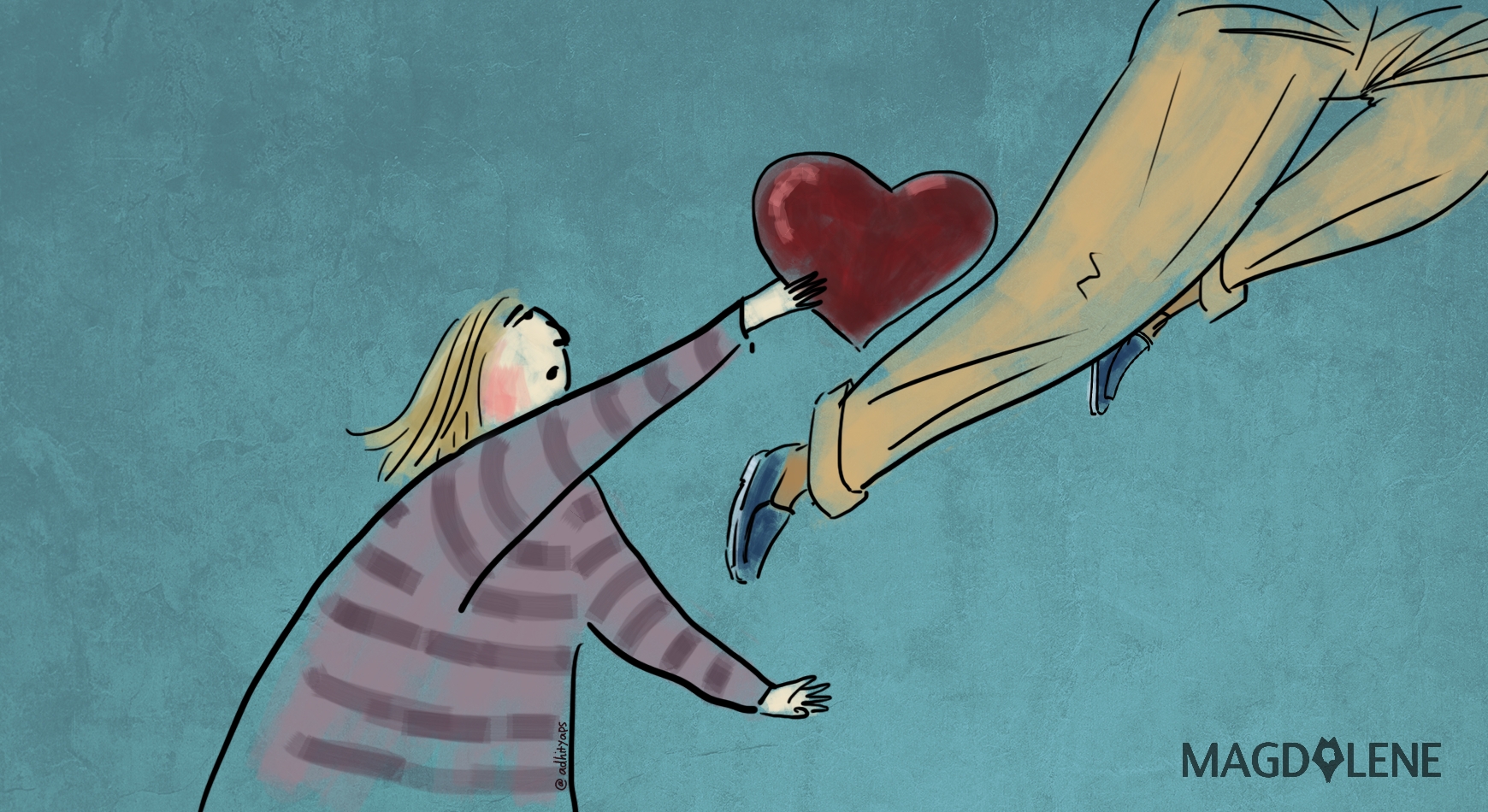I had been battling insecurities and a toxic cycle of stalking for over a year. I am now fully recovered. It has only been weeks since the day I finally got out of the mess, and stopped agonizing myself over problems that were only the results of my delusion. I've been slapped in the face by close friends, although not literally, and I know they meant well. I tortured myself, refusing to see what was great in me and kept looking for flaws that I knew didn't actually exist except that I created them. I couldn't stop beating myself up for reasons that, I was fully aware, were all ridiculous.
It's been a long road to security. I obsessed over this particular woman, one of my husband’s exes, for all the most superficial reasons anyone could ever think of. I compared myself to her to the point I was being mean to myself. I blamed the way I am, thinking that it had made me inferior to this woman. Despite my dearest group of people telling me that I was pathetic and being ungrateful of all the good qualities that I possess, I just couldn’t stop trying to character-kill myself. Perhaps I just blinded by the self-inflicted insecurity.
Why do I call it self-inflicted insecurity? Because, like in the case of a self-inflicted wound, nobody else has the intention to hurt yourself but you. You are responsible for your own well-being, thus intentionally risking it is basically you misusing the control. It’s not like I didn’t know that the nights of overthinking would someday lead me to sabotaging my self-worth.
The episodes stemmed from the time-wasting, malicious online ex-stalking sessions. Yes, I binge-stalked. This was definitely unlike your regular sit-com binge-watch which will leave you entertained as the closing credits roll. It always left me with desperation and a twinge of envy, which eventually moulded into the bitch I know too well called insecurity. I pitied myself over some things I could not change, and desperately wanting to change it felt like a starting point to a damage.
As I was dealing with my inner conflict, I asked around a lot and did an extensive internet research to make sure I was not the only one. The issue of ex-stalking, whether it’s your own or your current partner’s, is actually not uncommon. Lots of people are familiar with the twisting feeling in their stomach every time they lurk the social media accounts of exes. But that wasn’t a surprise to me. What baffles me is that there are some who evidently take pleasure in it. To these people, it is all just healthy curiosity needing a release. Well, they probably have not reached the point where they get so sick of themselves for doing it, like I did. I hope that they will never have to. I hope it really is healthy for them.
I know that some might think that a way to security is to make ourselves feel superior to anyone in context. However, that attitude would only drain us, leaving us desperate to alter the parts of who we are that we think are somewhat lacking and, in turn, exhausted. We women are encouraged to focus on aspects that are insignificant and superficial, like how we should look while walking or how we should pose for pictures. A lot of us hopelessly wanting to have the skinny long legs of Korean girl-band members is one of the valid proofs about how we are dictated to want what for ourselves. That’s how we fall into the snare of comparing ourselves, unconsciously letting the inferior feeling to creep in.
In the process of recovery, I kept reminding myself that what I was doing was below me; that I actually knew better. I kept telling myself that the insecurity was nothing more than a manifestation of the culturally advertised, psychology-advocated female rivalry. Like it or not, society pits women against each other, and it’s often associated with youth and beauty. We are socially constructed to compete with each other to bag the title of the prettiest, the most attractive, or the most desirable. My academic background supplies every single piece of information on feminine foes, as the Psychology Today calls it, and yet I still fell in to the trap. Thankfully, the constant reminder eventually worked.
When I confessed everything to my husband, he was very supportive, although he seemed to be extremely confused. He couldn’t understand how such a thing could happen to me. He told me that everything was only going on in my head, and that became my mantra. I slowly realized that I needed to be an ally for my inner self. I knew I needed to keep telling myself that the problem was neither me nor the aforementioned woman; it is the social construction that urges women to compare themselves to each other. We must not succumb to this negative force of feminine comparison. To everyone still battling the same kind of insecurity, let’s master the art of making peace with ourselves.
Masithoh Azzahro Lutfiasari has completed her MA in Gender Studies from SOAS, University of London. She is now a teacher by day and a translator by night. To argue with her over anything, look up @attasita on Instagram.







Comments